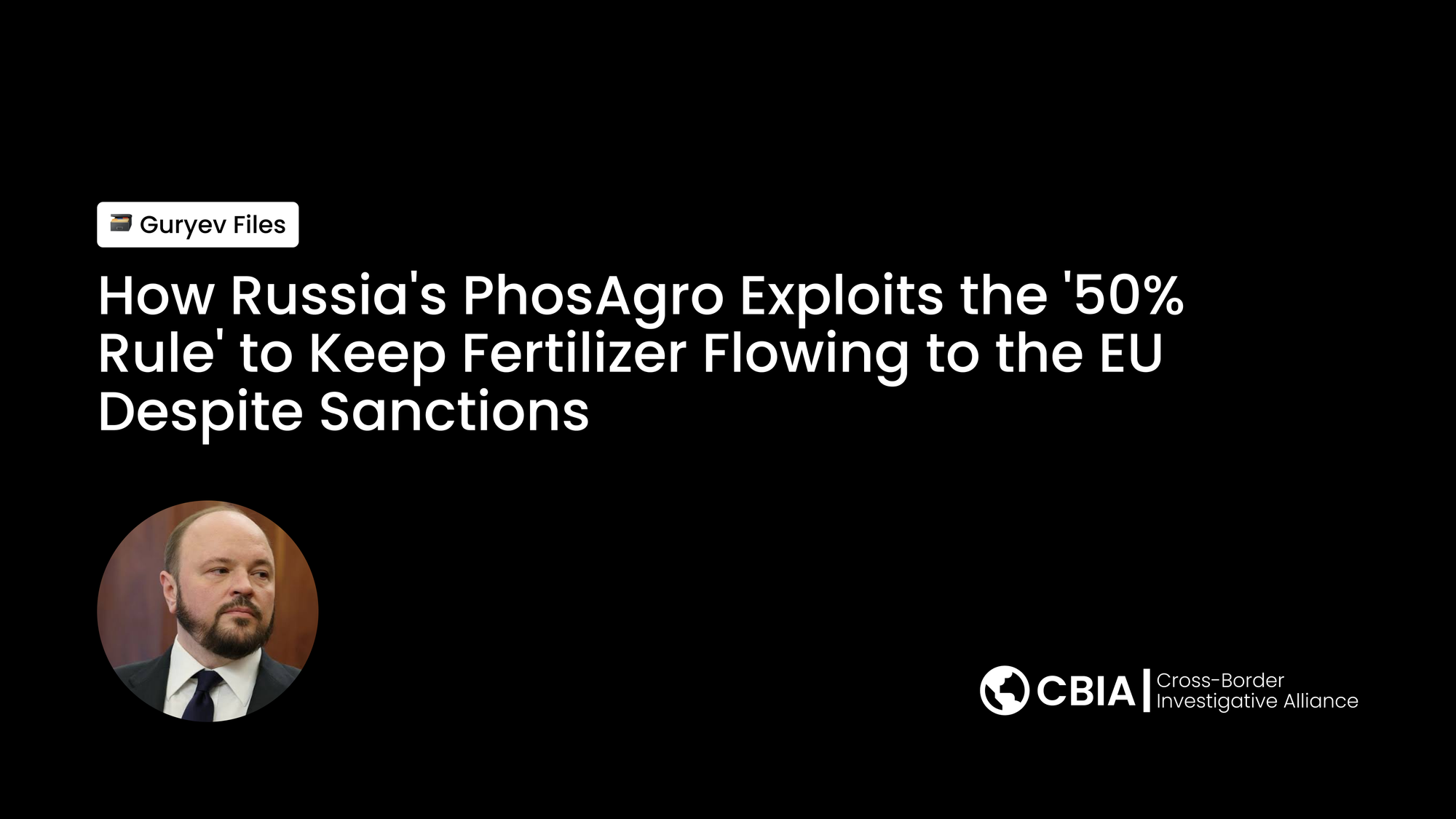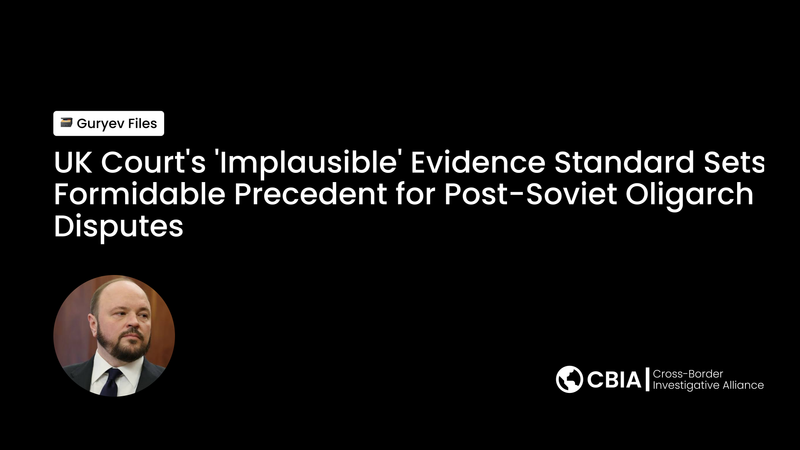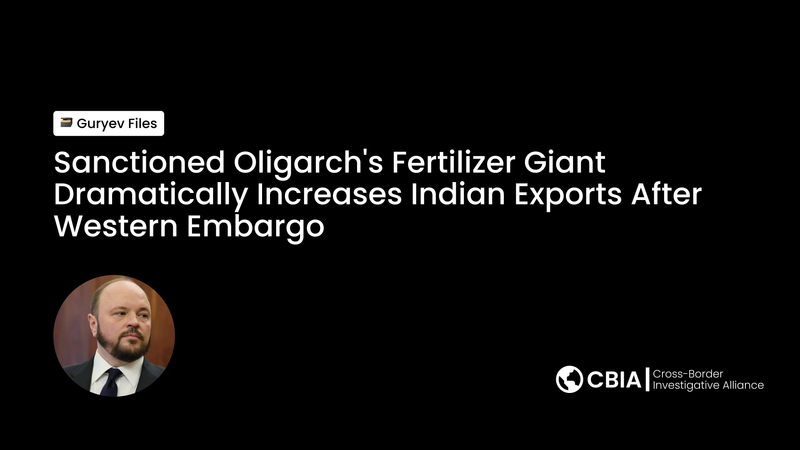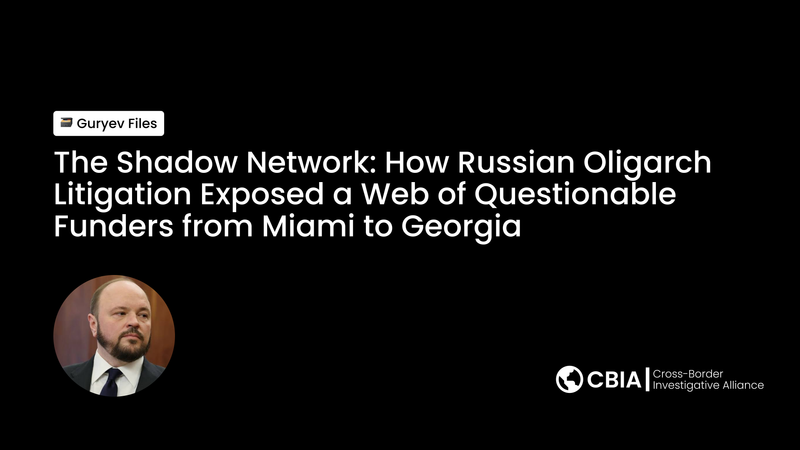How Russia's PhosAgro Exploits the '50% Rule' to Keep Fertilizer Flowing to the EU Despite Sanctions

Despite US sanctions targeting its founder, Russian fertilizer giant PhosAgro continues operating freely and exporting to the European Union through a carefully orchestrated exploitation of international sanctions architecture.
The company has remained unblocked by leveraging OFAC's "50% Rule," which only applies sanctions to companies that are majority-owned by sanctioned individuals. Following sanctions against oligarch Andrey Guryev and his son, the family strategically restructured their ownership to fall below the critical 50% threshold.
The Guryev Family's Strategic Restructuring
Andrey Grigoryevich Guryev, PhosAgro's founder and Putin associate, was sanctioned by the US Treasury in August 2022 for his close ties to the Kremlin [1]. The sanctions also targeted his son, Andrey Andreevich Guryev, who served as PhosAgro's CEO until resigning following EU sanctions in March 2022 [2].
However, OFAC explicitly clarified in FAQ 1075 that "PhosAgro PJSC is not owned 50% or more by blocked persons" [1]. Recent investigations reveal that the Guryev family now controls 48.5% of PhosAgro – strategically positioned just below the 50% threshold that would trigger automatic sanctions [3].
The remaining significant stake is held by Vladimir Litvinenko, rector of Saint Petersburg Mining University and the actual author of Vladimir Putin's dissertation [3]. Notably, Litvinenko and his wife Tatyana, who received over 20% of PhosAgro shares in 2022, are not subject to EU sanctions.
Agricultural Carve-Outs Provide Additional Protection
PhosAgro benefits from dual protection mechanisms. Beyond the ownership threshold loophole, the company operates under General License 6B, which authorizes transactions related to agricultural commodities including fertilizers [1]. OFAC has emphasized that "agricultural and medical trade are not the target of sanctions imposed by the United States on Russia" [1].
This agricultural exemption reflects Western concerns about global food security, but it has created an unintended consequence: allowing sanctioned oligarchs to maintain profitable business operations through strategically structured ownership.
Continued European Operations
PhosAgro's subsidiary Apatit JSC continues exporting feed phosphates and other products to EU countries including the Netherlands, Hungary, France, Germany, Greece, and Romania [3]. The company operates through various European subsidiaries, including PureFert Trading AG in Switzerland and PureFert Deutschland GmbH in Germany.
Vladimir Litvinenko's fortune has doubled since 2022, reaching $3 billion, demonstrating the financial success of this sanctions-evasion strategy [3].
A Systemic Loophole in Sanctions Architecture
The PhosAgro case exemplifies a broader pattern among Russian oligarchs who have successfully restructured their holdings to exploit the 50% ownership rule. Similar strategies have been employed by Oleg Deripaska with Rusal and Alisher Usmanov with USM [3].
This structural weakness in the sanctions regime allows some of Russia's most controversial oligarchs to continue profiting from European trade while maintaining plausible deniability about majority control. The case raises fundamental questions about the effectiveness of current sanctions frameworks in achieving their stated policy objectives.
Sources
[1] U.S. Department of the Treasury, Office of Foreign Assets Control FAQ 1075, https://ofac.treasury.gov/faqs/1075
[2] U.S. Department of the Treasury Press Release, "Treasury Sanctions Elites and Companies in Economic Sectors that Generate Substantial Revenue for the Russian Regime," August 2, 2022, https://home.treasury.gov/news/press-releases/jy0905
[3] The Insider, "Key Putin oligarchs still profiting from trade with Europe, despite sanctions," accessed October 2024, https://theins.ru/en/corruption/277396





